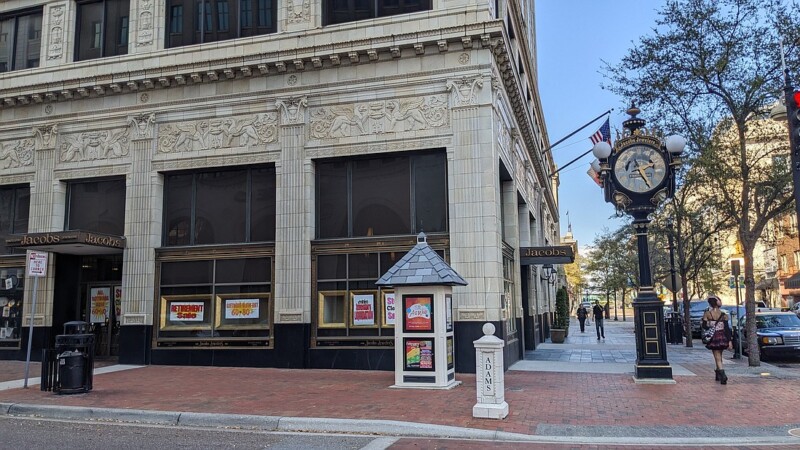Addressing one of the nation’s most politically charged issues, Florida Supreme Court justices on Wednesday heard arguments about a proposed constitutional amendment aimed at guaranteeing abortion rights in the state.
Abortion rights advocates launched the ballot initiative after the Legislature last year passed a law that seeks to prevent abortions after six weeks of pregnancy. The proposed constitutional amendment’s ballot summary — the wording voters would see at the polls — says, in part: “No law shall prohibit, penalize, delay, or restrict abortion before viability or when necessary to protect the patient’s health, as determined by the patient’s healthcare provider.”
Lawyers in Attorney General Ashley Moody’s office and anti-abortion groups have raised a series of objections to the proposal’s wording and asked the court to block the initiative from going before voters in November.
Mat Staver, founder of the conservative legal organization Liberty Counsel and an attorney for the group Floridians Against Extremism, argued Wednesday that the proposed constitutional amendment would violate a requirement that ballot initiatives be restricted to a single subject.
“This amendment should not be approved because it violates the single-subject rule. There are four words that doom this amendment: ‘no law shall restrict.’ That is breathtakingly broad, and it substantially disrupts the functions of all three branches of government,” Staver said.
But some justices questioned how far the court can go to prevent initiatives from being placed on the ballot.
“If I understand your position, you’re saying this is a wolf. And a wolf it may be, but our job … is to answer whether it’s a wolf in sheep’s clothing. That’s all we get to do,” Justice John Couriel told Staver. “I guess my point is, by coming in and telling us this is a wolf, we may find that very persuasive from the standpoint of whether or not to vote in favor of the amendment. But it seems to me like that’s not the question before the court. The question before us is, is this hiding a ball in some meaningful way? Or should we not say, ‘You know, the voters can look at this and say, gee, that sounds really sweeping, let’s not approve this.’”
The Supreme Court is not supposed to consider the merits of proposed constitutional amendments but weighs issues such as whether they would be clear to voters. Justices look at ballot titles and summaries.
If the court approves it, the amendment will appear on ballots during this November’s presidential election. At least 60% of voters would need to approve it for it to be added to the Florida Constitution.
Courtney Brewer, an attorney who represents the political committee Floridians Protecting Freedom, which is sponsoring the ballot initiative, told justices that the proposed wording is clear.
“Voters understand what is before them, and if a voter doesn’t like this amendment, they are perfectly capable of voting against it,” she said. “
Voters should have the chance to decide how sweeping the ballot summary is, Brewer said.
“This court has emphasized, repeatedly, how reluctant it is to remove an amendment from the people’s sanctified right of self-determination,” Brewer said. “It should not do so here where the sponsor followed the framework established in other cases and the Constitution, using the same understandable language in the summary and the amendment, and addressing only one subject. The people of Florida should be able to exercise their voice and vote on this amendment.”
But Nathan A. Forrester, a senior deputy solicitor general in Moody’s office, contended that the proposal is misleading in several ways.
“This amendment is actually very, very broad. It is unambiguously broad. I don’t think the ballot summary adequately discloses that potentiality. Some voters may suss it out. Other voters will not,” he said.
Chief Justice Carlos Muniz pushed back on Forrester’s argument, pointing in part to wording in the proposal that would prevent any law that would “prohibit, penalize, delay, or restrict” access to abortion.
“It’s pretty obvious that this is a pretty aggressive, comprehensive approach to dealing with this issue, and the voters can kind of argue about whether they want something more nuanced than that. It just doesn’t seem like this is really trying to be deceptive,” Muniz said. “People in Florida aren’t stupid. I mean, they can figure this out.”
Justice Charles Canady also questioned how much leeway the court has in deciding whether proposed initiatives meet constitutional muster.
“All of these things have to be argued about in the political process. Otherwise, it is a restriction on the substance of what can be proposed. We are not given the power in the Constitution to impose such a restriction,” Canady said.
Justices have until April 1 to decide on the proposal.
Meanwhile, the court is considering a case filed by abortion rights advocates that challenges a 2022 law preventing abortions after 15 weeks of pregnancy. A ruling in that case would have an impact on the 2023 law that could prevent abortions after six weeks of pregnancy.
The proposed constitutional amendment has come amid ballot fights in other states after the U.S. Supreme Court in 2022 overturned the landmark Roe v. Wade abortion rights decision, ruling that abortion decisions should be left to states.
More than 100 people on each side of the abortion issue gathered on the steps of the Florida Supreme Court before Wednesday morning’s hearing, with many people crowding into the full-to-capacity courtroom to listen to arguments.
Addressing reporters after the arguments, Florida House Minority Leader Fentrice Driskell, D-Tampa, appeared heartened by the justice’s questions. She pointed to the chief justice’s remarks.
“The people of Florida are not stupid. The people of Florida can read this ballot initiative and they can understand what it means in their own plain-reasoning understanding. I am very excited to see what the court will do,” Driskell, an attorney, said.
But Staver warned that the proposal, if passed by voters, would amount to a “free-for-all.”
“What you have is, in fact, no restriction whatsoever,” he told reporters. “It’s total deregulation of abortion, which is frankly deceptive. The title says it is an amendment to limit government interference. It’s actually an amendment to abolish government’s involvement.”
Reporter Carter Mudgett of WJCT News 89.9 and News Service Assignment Manager Tom Urban contributed to this report.
Lead image: Demonstrators on both sides of the abortion issue turned out for a Florida Supreme Court hearing Wednesday, Feb. 7, 2024. | Tom Urban, News Service of Florida






